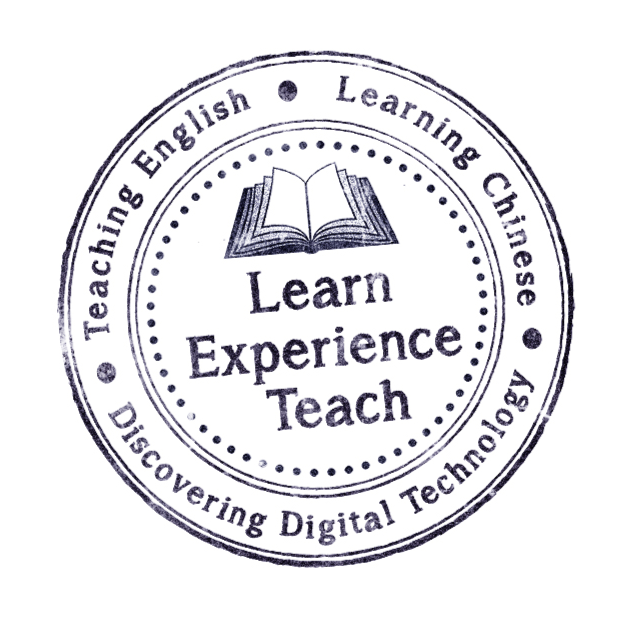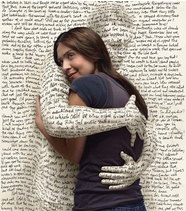What is Flash Fiction?
Actually, our first creative writing task was not the first time I had come across the term flash fiction. Indeed, it is through seeking out fun ways to learn Chinese that I began to think about how to make writing Chinese characters, just that little more enjoyable.
I have spent considerable time teaching myself Chinese by following the HSK Chinese language syllabus. There are 6 levels, from beginner to advanced, and I am lurking somewhere in the danger zone* between level 4 than 5. That means I can recognise between 1200 (HSK 4) and 2500 (HSK Level 5) characters. This is where writing flash fiction steps could be of use. Flash fiction is essentially a short story of about 1000 words. Translate that to HSK Level 4, where I’m at, really, then its a perfect fit to keep me recyling the words I know in a creative way. I set up a blog on weibo, and my creative juices were flowing, and then…well, as with all great ideas, I didn’t go through with it!
Fast forward to today, and I am considering again posting on my Chinese blog, or, perhaps easier still, to post on this blog in Chinese. Check back soon to find out if that idea comes to fruition.
First Creative Writing Task
Choose two elements and write a short flash fiction story about them.
Happy to have some guidance, I expanded on the above with my own method:
– Choose two elements (air and fire)
– Brainstorm words related to those elements
– Brainstorm the basic outline of a love story (element meets element, element falls for element, oracle proclaims the elements are destined not to be together, cue lots of sobbing)
– Group words that sound the same
– Fight the urge to write a poem
– Accept the urge to write a poem
First Flash Fiction – Element Love Story
So air was light, and bright, and slight, so full of delicate charm,
And fire was dense, immense, and tense, so moody, not false but alarm
Sudden bright spark, allumes* dark, substance swirls and makes its mark
Whistle of wind, wispy still, envelopes like gown, pervades a chill
The elements, the matter, two compliment signs, compliments chatter
But hearts, entwined, destiny faced, never to matter.
An oracle spoke, and cried and choked, the words that led to doom
And in that time, the smoke and hope, just dissipated into gloom
So there was air, so full of despair, so full of angst and dread
And there was fire, so full of rage, so angry, not yellow but red
And the lesson today, of love dismay, of love so commonly had
It’s compliments attract, but destiny rules, not mad, not sad, just fact
My Thoughts
If I use a thesaurus and dictionary, is that still being creative?
Can I mix in other languages?
Are the differing tempos, OK?
*’allumes’ comes from the french verb allumer – to light up/brighten


Hi Karina
Your poem is beautiful and so sad! I was interested to read how you went about the writing of it, it seemed quite a logical, methodical method compared to what is a very creative result. I think that it is creative to use a thesaurus and this is the sort of thing we could hope our students would be inspired to do. Is there any reason you felt the urge to write a poem over prose? Thank you, I enjoyed reading. Jen
Hi Jennifer,
Thank you for your positive comments. I’m trying to think back to where I was at the time of writing, as to why I chose a poem. Perhaps I felt that a poem was the clearest (read, most traditional) way to express ‘love’? Perhaps I wanted to put love at the centre of the story, rather than the characters, so writing something short, like a verse or two, would keep the central topic clear? Hmmm, just as likely is that I had started to collect similar-sounding words during the brainstorming session, and, on muttering those words to myself, I began to hear a rhythm. And that beat of the ‘spoken word’, lent itself to the form of a poem.
As for using a thesaurus, I think you’re right that everyone needs some form of guidance, so a thesuarus or dictionary should be permitted in this exercise, to stimulate ideas. I think that if our students have these tools by their side, they are more likely to feel inspired, and, if nothing else, more confident in the choices of words that they make.
I look forward to reading your story!
Hi Karina
Great to see your poem here (again, I love it) and very interesting to read both you ‘creative’ process and your ‘pedagogical’ one. An exercise like that, as you say, would need much more prep in the language classroom, but by immersing ourselves in the creative process first, we are able to see what your needs where when writing, and what your students’ needs would be. This is exactly the pattern we will be developing on this module, the path from creating to teaching (and teaching in a foreign language!) Thank you for sharing.
Thanks for your comments, Veronica.
Yes, I do see the value of us going through the process of learning to write, before we attempt to teach others. And, although it seems there’s a lot of preparation needed setting up the task, I feel that extended time will only deepen the learning experience for everyone involved.
Karina, I really enjoy the rhythm of your poem. It feels like a rollercoaster ride rising up and down through every line. The way that you have used commas could be the basis of a lesson on understanding punctuation and how it can add and change the way that language is received and perceived. Students could be tasked with changing the location of punctuation to see what happens. (Does the message stay the same? Does the meaning change? Does the poem still make sense?)
I absolutely think that using a thesaurus is still being creative. In fact, a thesaurus (in my mind) is a wellspring for creative activities. For example, it is a treasure for teaching and learning the importance of context to word choice -by using a thesaurus and asking students to try to fit all of the “synonyms” found for a certain word into the same sentence, they will see that not every word that apparently means the same, works. I am a big fan of the thesaurus on so many levels. I hope you continue to use it to create such beautiful images.
Thanks for your comments, Barb, and for your ideas for deepening students understanding of punctuation, and expanding their vocbaulary through writing and analysing creative texts. I’ll definitely keep using a thesaurus then!